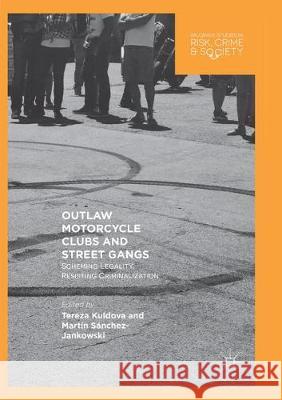Outlaw Motorcycle Clubs and Street Gangs: Scheming Legality, Resisting Criminalization » książka
topmenu
Outlaw Motorcycle Clubs and Street Gangs: Scheming Legality, Resisting Criminalization
ISBN-13: 9783030094072 / Angielski / Miękka / 2018 / 234 str.
Kategorie:
Kategorie BISAC:
Wydawca:
Palgrave MacMillan
Seria wydawnicza:
Język:
Angielski
ISBN-13:
9783030094072
Rok wydania:
2018
Wydanie:
Softcover Repri
Numer serii:
000768721
Ilość stron:
234
Waga:
0.27 kg
Wymiary:
21.08 x 21.08 x 1.27
Oprawa:
Miękka
Wolumenów:
01











